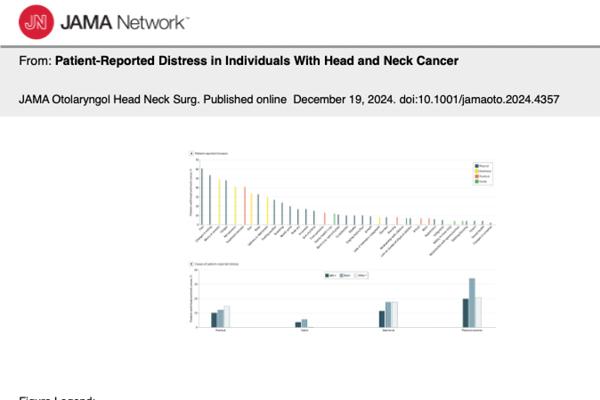
A recent study, “Patient-Reported Distress in Individuals With Head and Neck Cancer”, published in JAMA Otolaryngology-Head & Neck Surgery has shed light on the emotional distress experienced by patients with head and neck cancer (HNC). Conducted at a National Cancer Institute-designated comprehensive cancer center in the Southeastern US, the study analyzed data from 507 patients diagnosed with head and neck squamous cell carcinoma between January 2017 and December 2022.
The study was conducted by a team of researchers including Duke Cancer Center’s Survivorship Director: Cheyenne Corbett, PhD, Duke Head and Neck Surgery & Communications Sciences: Trinitia Y. Cannon, MD, Tammara L. Watts, MD, PhD, Rong Jiang, PhD, Nosayaba Osazuwa-Peters, BDS, PhD, MPH, CHES, and Duke School of Medicine’s Melissa C. White, BA.
The findings revealed that nearly half of the patients (45.8%) reported clinically meaningful distress, scoring at least 4 on a distress scale from 0 (no distress) to 10 (extreme distress). Interestingly, the study found that race was not significantly associated with distress levels. Black patients, White patients, and patients of other races all reported similar levels of distress.
However, the study highlighted the importance of emotional and social factors. Unmarried patients were more likely to report distress compared to their married counterparts. Additionally, patients with emotional problems had double the odds of experiencing clinically meaningful distress. Other factors contributing to higher distress levels included tobacco use and practical problems such as financial issues.
The research underscores the need for emotional and social support for patients with head and neck cancer, regardless of their race or other sociodemographic factors. Providing such support can help reduce distress and improve mental health care for these patients.